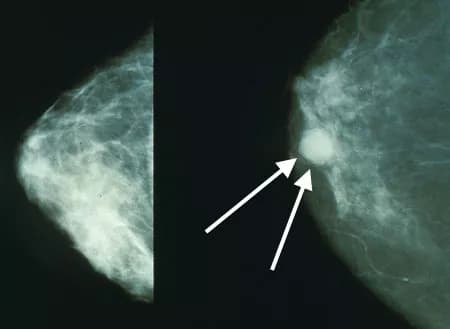
Rare Cancer Linked With Textured Breast Implants May Be Underreported, Misunderstood
A rare cancer in patients with breast implants may be on the rise, but not all patients and physicians may be aware of the risks associated with the procedure, according to a group of Penn State College of Medicine researchers.
Breast implant-associated anaplastic large cell lymphoma -- or BIA-ALCL -- is a rare peripheral T-cell lymphoma that may develop in patients with breast implants. The researchers said the cancer is likely underreported, and although it appears to be linked with a certain type of implant, more research is needed to identify the specific cause.
In a new literature review, the researchers analyzed 115 research articles in which 95 patients were evaluated to learn more about the development, risk factors, diagnosis and treatment of BIA-ALCL. The results were published in a research review in JAMA Surgery.
"We're seeing that this cancer is likely very underreported, and as more information on this type of cancer comes to light, the number of cases is likely to increase in the coming years," said Dino Ravnic, assistant professor of surgery, Penn State College of Medicine. "We're still exploring the exact causes, but according to current knowledge, this cancer only really started to appear after textured implants came on the market in the 1990s."
BIA-ALCL is estimated to affect 1 in 30,000 women with breast implants each year, although the researchers said the cancer could be more common. The researchers said almost all of those cases were associated with textured implants, which have a slightly rough surface that keeps the implant in the correct position.
Textured implants rose in popularity in the 1990s, and the first case of BIA-ALCL was documented in 1997. The researchers say that because they could find no incidents of BIA-ALCL prior to the introduction of textured implants, this suggests a causal relationship, although more research is needed.
"All manufacturers of textured implants have had cases linked to this type of lymphoma, and we haven't seen cases linked to smooth implants," Ravnic said. "But in many of these cases the implant was removed without testing the surrounding fluid and tissue for lymphoma cells, so it's difficult to definitively correlate the two."
After reviewing the literature, the researchers believe that BIA-ALCL may occur as a result of inflammation surrounding the breast implant, and tissue that grows into the tiny holes in the textured implant may prolong that inflammation. Previous research has shown that chronic inflammation can lead to lymphoma.
In the cases analyzed, BIA-ALCL typically developed slowly, with good prognoses for patients who had both the implant and surrounding scar tissue removed. Of the 95 patients in the review, five died.
The researchers recommend that in the future, surgeons should communicate the risks of BIA-ALCL to patients. Physicians should also stress the importance of routine checkups after the implants are in place.
Materials provided by Penn State. Note: Content may be edited for style and length.
Disclaimer: DoveMed is not responsible for the accuracy of the adapted version of news releases posted to DoveMed by contributing universities and institutions.
References:
Penn State. (2017, October 18). Rare cancer linked with textured breast implants may be underreported, misunderstood. Retrieved October 20, 2017.
Related Articles
Test Your Knowledge
Asked by users
Related Centers
Related Specialties
Related Physicians
Related Procedures
Related Resources
Join DoveHubs
and connect with fellow professionals

0 Comments
Please log in to post a comment.